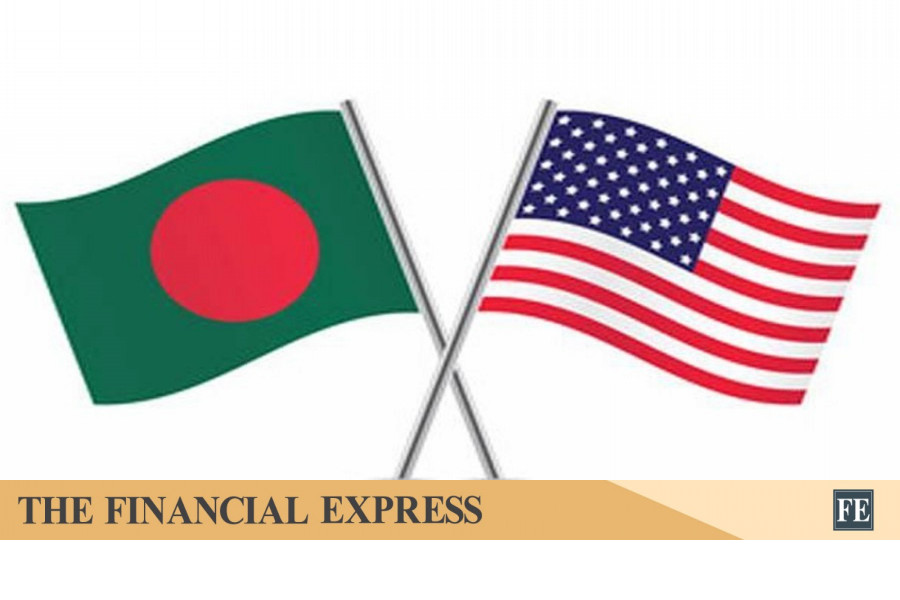Bangladesh commits to $18.5b US farm, energy imports
Reciprocal trade deal with US will see Bangladesh import $3.5b in farm goods, $15b in energy
Bangladesh will buy $3.5 billion worth of US agricultural products and $15 billion of energy under a broader reciprocal trade agreement with Washington, signed on Monday.
The energy imports will take place over 15 years. The overall value of the deal will rise further if the planned purchase of 14 Boeing aircraft by state-owned Biman is included, according to a joint statement issued by Bangladesh and the USA after the signing.
Earlier this week, the interim government said it would sign an agreement with Boeing to buy 14 aircraft valued at around Tk 30,000 to Tk 35,000 crore ($2.46-$2.87 billion).
“Bangladesh commits to provide significant preferential market access for US industrial and agricultural goods, including: chemicals; medical devices; machinery and motor vehicles and parts; information and communication technology (ICT) equipment; energy products; soy products; dairy products; beef; poultry; and tree nuts and fruit,” the White House said in a statement issued yesterday.
Under the agreement, the US will cut reciprocal tariffs on Bangladeshi goods to 19 percent from 20 percent, with some products qualifying for zero-tariff treatment.
A separate mechanism will allow a specified volume of Bangladeshi textiles and apparel to enter the American market duty-free, linked to the use of American cotton and man-made fibres, according to the statement.
The agreement was signed after negotiations spanning more than nine months from April last year. In that month, Washington imposed a 37 percent reciprocal tariff on Bangladeshi exports.
The US is the largest single-country export destination for Bangladeshi products.
According to the joint statement, the deal builds on a long-standing economic relationship between the two countries, including the US-Bangladesh Trade and Investment Cooperation Forum Agreement (Ticfa) signed in 2013.
As per the reciprocal tariff deal, Dhaka has also pledged to lower non-tariff barriers by recognising US vehicle safety standards and Food and Drug Administration certificates for medical devices and pharmaceuticals, and by lifting restrictions on remanufactured goods.
Besides, Bangladesh said it will digitalise its customs procedures, allow cross-border data flows, and improve regulatory practices.
“The agreement commits Bangladesh to strengthen labour protections, enforce environmental laws, and adopt robust intellectual property standards, including provisions on geographical indications to safeguard US producers of cheese and meat.”
The statement said that Washington, meanwhile, will consider financing investment in critical sectors through institutions such as the Export-Import Bank and the International Development Finance Corporation.
“Bangladesh commits to a robust standard for intellectual property protection and enforcement, including ratifying or acceding to and fully implementing certain international intellectual property treaties,” the statement said.
Regarding the deal, Commerce Adviser Sk Bashir Uddin and Commerce Secretary Mahbubur Rahman later briefed reporters at the commerce ministry.
Bashir Uddin said Bangladesh had little choice but to sign the deal, as the US remained its largest export market and the trade balance favoured Bangladesh by more than $6 billion, or around Tk 1 lakh crore, each year.
Protecting national interests, therefore, required signing the agreement, as other major trading partners had already done, said the adviser.
He added that Bangladesh stood to gain significantly, as more than 86 percent of its exports were garments. The US has agreed to grant zero-duty access for apparel made using US cotton or man-made fibres.
If local exporters use 70 percent US inputs in garment production, that portion will be exempt from the 19 percent reciprocal tariff, he said.
However, existing tariffs will continue to apply, as the reciprocal tariff is additive to the Most Favoured Nation (MFN) rate.
The adviser said only around 10 percent of Bangladeshi exports to the US were likely to face the 19 percent tariff, as some 2,500 products, including pharmaceuticals, plywood, fisheries and food items, would also qualify for zero-duty access.
Bangladesh had sought a free trade agreement with the US, but this was not possible because the Trump administration was unwilling to pursue such a deal, said Bashir Uddin.
He added that local textile and spinning mills would benefit, as exporters would need to follow a double-stage transformation process to qualify for duty-free access.
The agreement is also expected to encourage higher imports from the US. Bangladesh usually imports food worth about $15 billion a year, and purchases of American cotton, soybeans and wheat have already risen since negotiations began last year, owing to competitive prices and quality.
During the talks, Bangladesh focused mainly on boosting garment exports, Bashir Uddin said.
Mahbubur Rahman said both the economic partnership agreement with Japan and the reciprocal tariff deal with the US would take effect once formal notifications were issued by all sides.
Bangladesh has offered substantial market access for US goods across its tariff schedule, including phased tariff reductions over five or ten years, an approach the commerce ministry said was uncommon in comparable agreements.
The deal also includes commitments on labour, environment, transparency and governance, along with an exit clause proposed by Bangladesh.
Either side may withdraw from the agreement with two months’ notice, the secretary said.
The Bangladesh Garment Manufacturers and Exporters Association (BGMEA) yesterday welcomed the agreement.
In a statement, BGMEA said, “We believe this provision will further enhance Bangladesh’s access to the US market. However, to effectively utilise this opportunity, it will be essential to ensure proper valuation and traceability of US-origin raw materials used in production.”
Syed Ershad Ahmed, president of the American Chamber of Commerce in Bangladesh, said the US remained one of Bangladesh’s most important export destinations, especially for ready-made garments, and that the deal would provide greater predictability for exporters while preserving competitiveness.
He added that the zero-tariff provision for products made with US inputs could deepen supply chain integration, encourage value addition and strengthen backward linkages between US producers and Bangladeshi manufacturers.










































